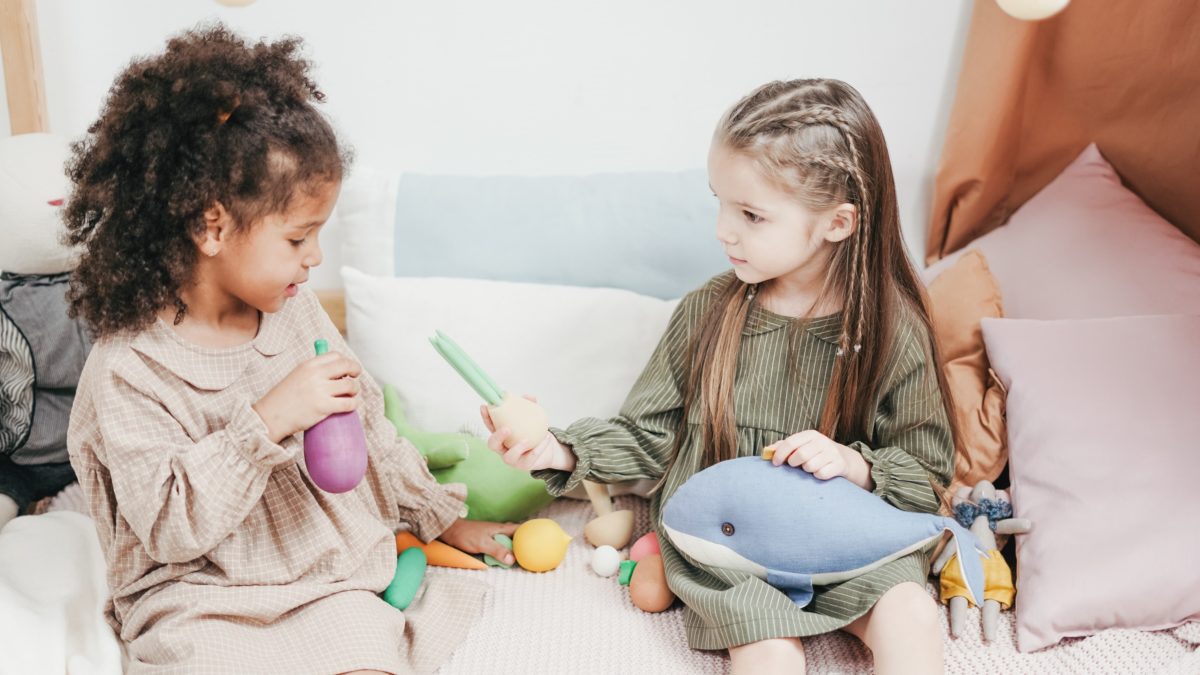How Social-Emotional Skills Develop in High-Quality Preschool Programs

Beyond the ABCs and 123s, a child’s social-emotional health is absolutely critical to the long-term trajectory of their lives. When social and emotional health is prioritized in the preschool classroom, it has a cascading impact on a child’s long-term ability to grow, thrive, and succeed.
At One Place, we serve over 700 children each year through our preschool programs. We focus on providing children with a warm, safe, and culturally-aware environment to engage in critical thinking, problem-solving, and teamwork. Through this experience, each child’s social-emotional health develops, providing them with the necessary foundation to transition to grade school and beyond.
What is Social and Emotional Health?
During the first few years of a child’s life, they start to acquire social and emotional skills, which are defined as the ability to:
- Experience, regulate, and express emotions
- Identify and understand their own feelings
- Assess and understand the emotions of others
- Establish and maintain positive, close relationships with other children and adults
- Feel empathy for others
- Explore their environment and continue to learn
A child’s social-emotional health and development is influenced by underlying biology as well as their lived experiences. These early experiences, for example, may include interactions with caregivers, parents, extended family members, child care providers, and teachers.
Why Does Social-Emotional Health Matter?
A child’s social and emotional health impacts their overall development and ability to learn. Children who are socially and emotionally healthy tend to demonstrate and develop a multitude of important behaviors and skills—and these skills lay a strong foundation for a child’s growth in literacy, numeracy, and other cognitive capabilities.
Most children experience healthy, predictable social-emotional development. They bond with their primary caregivers, learn how to soothe themselves when experiencing strong emotions, discover how to play and connect with other children, and learn to follow directions and read social cues.
Unfortunately, at least 10 percent of children experience a negative social-emotional experience during these formative years—particularly children who are exposed to certain adverse childhood experiences (ACEs), which may include parental loss, substance abuse, mental illness, and/or exposure to trauma.
When dealing with stress and/or trauma, a child’s brain produces high levels of cortisol as a response. Long-term periods of high stress are defined as “toxic stress,” and result in a cascade of chemicals and reactions that negatively impact a child’s developing body and brain—and can even cause permanent damage to the brain and other developing systems in the body.
How Early Learning Supports Social-Emotional Development
Early childhood education settings provide a rich environment for children to build, develop, and explore their social and emotional skills. The best early childhood programs provide highly positive interactions between educator and child—and through individualized instruction, the educator can meet the child’s unique needs and begin to build a deep bond.
This trusting, caring relationship between teacher and child is absolutely critical for a child’s optimal development. Children who have meaningful relationships with their teachers are more willing to ask questions, solve problems, try new tasks, and freely express their thinking.
Because a child’s brain develops with such rapid speed during the first 2,000 days of their life, the quality of these early experiences and interactions are responsible for the child’s social-emotional foundation. If these early experiences in preschool are negative or harmful, it impacts how a child will react and respond to their surrounding world for the rest of their life.
Our Impact
Our goal at One Place is to ensure that all of our early childhood education programs provide high-quality, positive environments for a child’s social-emotional development and skills to thrive. Our early childhood educators prioritize building trusting relationships through warmth, affection, and mutual respect in the classroom.
Educators in our preschool programs use tools available through the Creative Curriculum, which includes the following learning objectives and techniques:
- Regulate own emotions and behaviors
- Establish and sustain positive relationships
- Participate cooperatively and constructively in group situations
PreK staff also use the North Carolina Foundations for Early Learning and Development to address learning targets for children that include the following:
- Express positive feelings about themselves and confidence in what they can do
- Recognize and respond to the needs and feelings of others
- Demonstrate a positive sense of self-identity and self-awareness
If you’re interested in learning more about One Place’s preschool programs, click here. If you have specific questions, reach out to the School Readiness Team at (910) 968-2722 or courtney.wandishin@oneplaceonslow.org.
Resources
- https://www.ncsl.org/research/human-services/social-and-emotional-development-in-early-learning-settings.aspx
- https://www.naeyc.org/resources/pubs/yc/mar2018/promoting-social-and-emotional-health
- https://www.nap.edu/catalog/19401/transforming-the-workforce-for-children-birth-through-age-8-a
- https://www.ncbi.nlm.nih.gov/pmc/articles/PMC4034459/
- https://developingchild.harvard.edu/science/key-concepts/toxic-stress/
- https://46y5eh11fhgw3ve3ytpwxt9r-wpengine.netdna-ssl.com/wp-content/uploads/2008/05/Establishing-a-Level-Foundation-for-Life-Mental-Health-Begins-in-Early-Childhood.pdf
- https://www.zerotothree.org/resources/1221-planting-seeds-in-fertile-ground-steps-every-policymaker-should-take-to-advance-infant-and-early-childhood-mental-health
- https://www.cde.ca.gov/sp/cd/re/itf09socemodev.asp
- https://eclkc.ohs.acf.hhs.gov/school-readiness/effective-practice-guides/social-emotional-development
